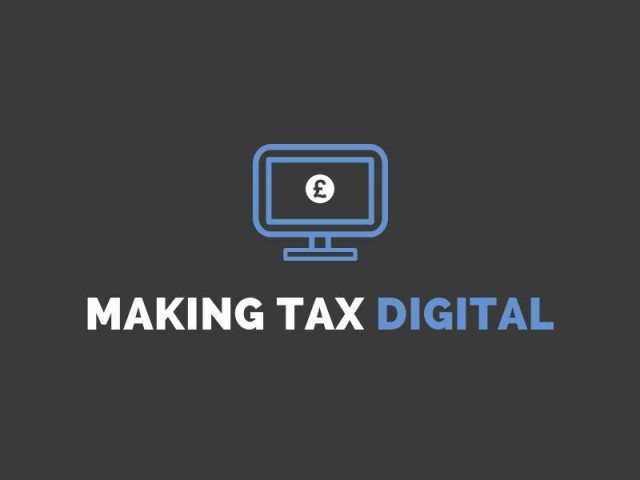Is Making Tax Digital on Hold?
What is Making Tax Digital all about?
First announced in 2015 as part of the March Budget by then-Chancellor, George Osborne, Making Tax Digital (MTD) is an initiative designed to modernise the way tax is recorded in the UK.
MTD will see businesses use accounting software to digitally and more frequently update HMRC on their tax, going from the present once a year to quarterly. This is all in the hopes of making tax a less stressful issue for businesses, reducing the amount of paperwork, helping businesses stay on top of their tax better and reducing money lost through incorrect reporting (though, HMRC also believe that less tax avoidance will take place).
The government's original goal was to transform the tax system by 2020 through the introduction of digital recordkeeping and quarterly tax updates from businesses, the self-employed and landlords for income tax self-assessments, value-added tax and corporation tax.
When will Making Tax Digital start?MTD was initially intended to be phased in from April 2018, however, this has been pushed back. The process of exiting the EU has increased HMRC's workload by an estimated 15%, so MTD has been delayed.
With these developments, qualifying businesses will not be required to follow Making Tax Digital until April 2019. Even then, this will only be for VAT. And this will only be applicable to businesses that have a turnover above the VAT threshold (which is £85,000 per year). Smaller businesses will not be required to use the system, but can do so of their own accord.
It will not be mandatory for qualifying businesses to give quarterly updates on other taxes, but many businesses are expected to do so anyway and may find it easier than the current system.
The government has said that it will not make MTD compulsory outside of businesses over the VAT threshold until the system has been tested and proven successful. Even then, it will not be before April 2020, allowing enough time to fully assess the system's effectiveness.
The original timeline set out by the government proposed a phased introduction of MTD between the 2018-19 and 2020-21 tax years (see timeline below).
What business expenses will MTD incur?
From April 2019, all businesses over the VAT threshold will have to use third-party commercial software to submit VAT information to HMRC.
This will cost businesses as these types of software operate on a subscription basis. Software you can use includes Intuit QuickBooks, Xero, Sage, etc - a full list of Making Tax Digital software providers can be found here. The cost of the software is not prohibitive (starting from only £5 per month), and using such software does have its advantages (see below).
For businesses with income below the VAT threshold, whether or not they will have to invest in commercial software is somewhat less clear. The government has stated that free software will be made available for businesses with "straightforward affairs", which are expected to be those that have no employees and are unincorporated.
HMRC are currently in the process of working with developers to create software with the minimum requirements for these types of businesses.
So, at this stage it looks likely that becoming MTD-compliant will cost businesses. However, there are numerous possible benefits of Making Tax Digital for businesses including:
- More organised bookkeeping - by keeping records digitally, you avoid the last-minute panic and difficulty trying to track down receipts from the last year.
- Time saving -for all businesses, time is money. With Making Tax Digital compatible software, many time-consuming processes can be automated, freeing you or your staff up to do more.
- Fewer Mistakes - submitting more regularly and getting into the habit of keeping records digitally is likely to reduce the number of mistakes. Not only do mistakes cost the government, they also cost your business, with something as simple as a late filing carrying a fine.
- Better debt control – businesses will have real time information at their fingertips, allowing them to keep on top of monies they are owed (and of course, which they owe).
- Enable better business decisions – as businesses will have up to date figures, they can make better informed decisions with regards to potential investments, cash flow, etc.
It is possible that some businesses may be exempt from MTD. There are no current rules to determine which based on turnover (though previously, businesses with lower than £10,000 annual turnover were set to be). Charities will not be required to participate in MTD (though any trading subsidiaries of charities will be).
Also excluded from MTD will be those businesses that are deemed to be "digitally excluded", this covers businesses that are unable to use any of the recommended software for reasons such as age, religion, remoteness of location, and disability.
Given the changes are happening, we are encouraging businesses to get ahead of the game and start using such software now - there's no need to wait until nearer April 2019 to start taking measures to comply with MTD. Not only will this help be ready for when MTD is mandatory, more importantly is can bring your business benefits, some of which are detailed above.
Not sure exactly how to go about becoming MTD-compliant? Do you want to know more about how such software can benefit your business? MoynanSmith are more than happy to help. Whether you're not sure if your business qualifies for MTD or want help getting to grips with accounting software, our team have the knowledge and expertise to make sure you're ready for MTD.
Comments
By accepting you will be accessing a service provided by a third-party external to https://www.moynansmith.co.uk/



